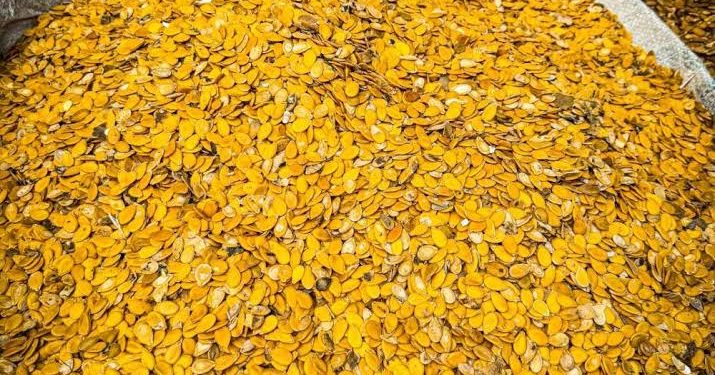A melon seed from the Egusi plant, widely cultivated in West Africa, has earned a place in space history as it joins an international agricultural experiment aboard the International Space Station (ISS). Sourced from Oyo State, Nigeria, the seed will lift off on July 31, 2025, aboard SpaceX’s Falcon 9 rocket from Cape Canaveral, Florida, as part of Crew-11’s mission.
The space-bound seed is part of a research initiative led by Nigerian space scientist and entrepreneur Dr. Temidayo Oniosun. It marks the first time a seed native to West Africa—and the first physical object from Nigeria—will travel to space for scientific research. The Egusi seed will join culturally significant crops from Egypt, Armenia, and Pakistan in a study aimed at examining how traditional agricultural seeds respond to the conditions of microgravity.
“This is the first time an object from Nigeria is going to space,” said Dr. Oniosun, who also serves as the Principal Investigator on the project. “By representing Nigeria and West Africa on a global platform of space research, the mission also underscores the importance of indigenous crops.”
The project is a collaboration between Dr. Oniosun, The Karman Project, and Jaguar Space, and reflects rising global interest in food security, climate resilience, and the future of agriculture in extreme environments, including outer space. Upon the seed’s return from the ISS, Dr. Wagner Vendrame of the University of Florida will lead follow-up experiments, including in vitro germination, metabolic testing, spectral imaging, and gene expression analysis.
Egusi, a protein-rich seed integral to West African cuisine, holds considerable economic value in Nigeria. Its inclusion in the mission is not only a nod to cultural heritage but also a strategic step toward exploring how traditional crops can contribute to sustainable food systems beyond Earth. Researchers believe this data could support innovations in extraterrestrial agriculture, especially for long-duration space missions.
The experiment highlights Africa’s growing footprint in global scientific exploration and reinforces calls for more inclusion of indigenous knowledge and crops in international research. Mission partners are open to institutional collaboration and encourage interested stakeholders to reach out directly.










